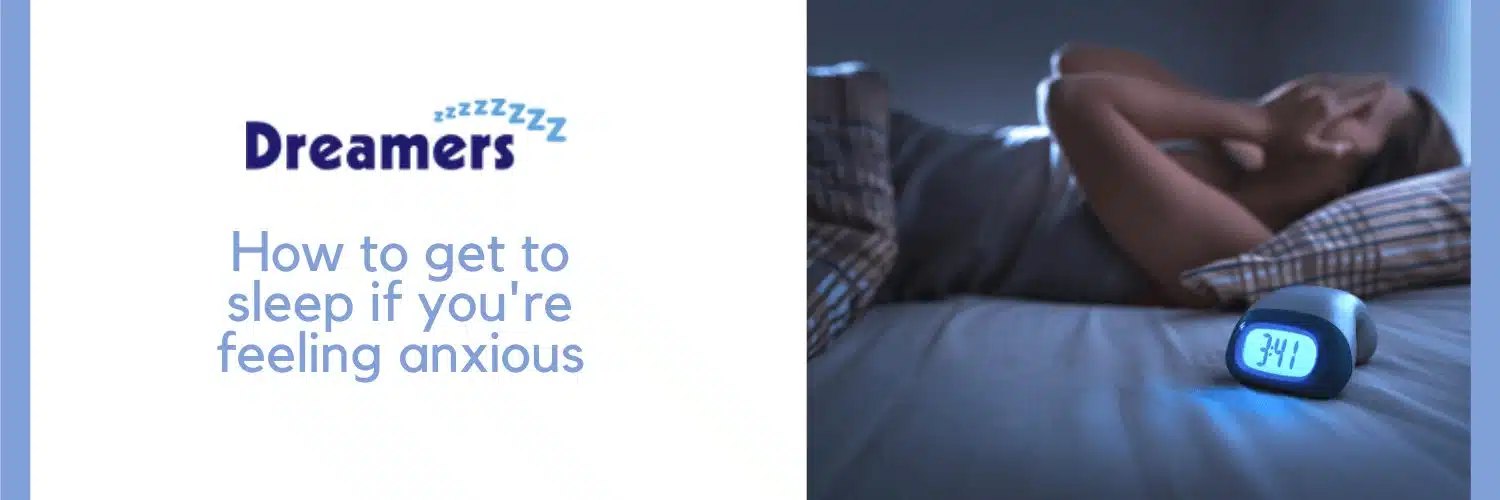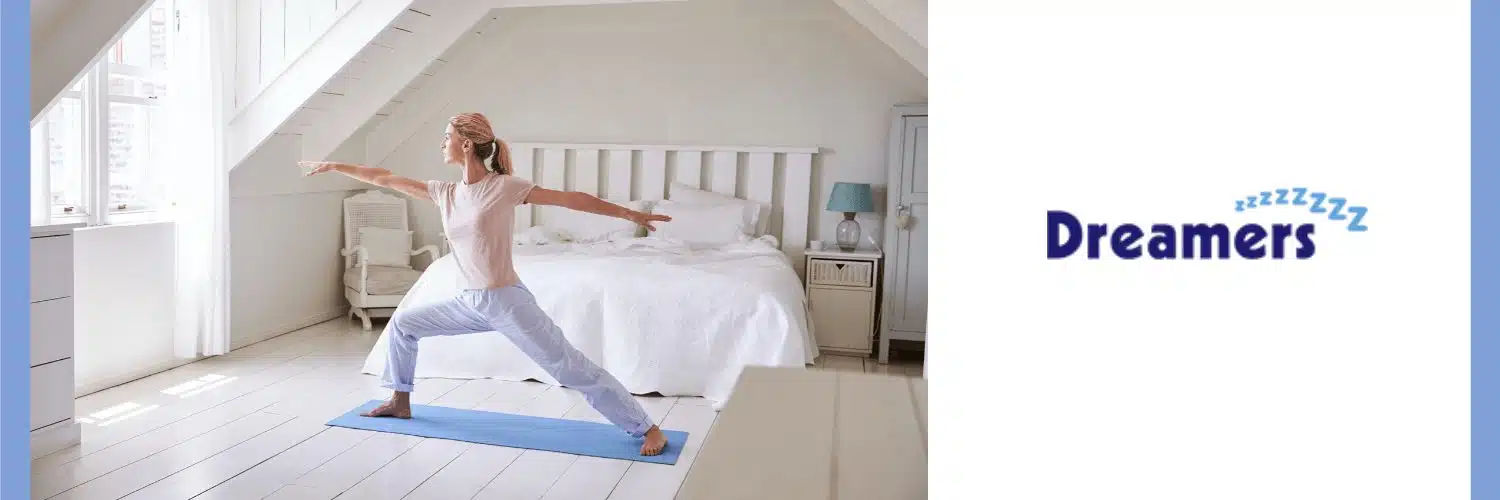How to get sleep if you’re feeling anxious
Feeling anxious about the COVID-19 pandemic? You’re not alone. We’re living through unprecedented and uncertain times. The schools are shut, people are working from home, many have been furloughed – not to mention the immediate risk to our health. It’s...

Feeling anxious about the COVID-19 pandemic? You’re not alone.
We’re living through unprecedented and uncertain times. The schools are shut, people are working from home, many have been furloughed – not to mention the immediate risk to our health. It’s completely understandable to be worried. But such worry can leave us feeling very restless and, as a result of the nationwide lockdown, more and more people are now struggling to sleep.
The link between anxiety and sleep
Anxiety and sleep are very closely related. The more anxious you feel, the harder it will be for you to drop off. Thoughts may be racing through your mind, your muscles may be tense, your heart might be racing – all of which can make it difficult to switch off and get a good night’s rest. In turn, a lack of sleep can also have a negative effect on mental health, therefore making the situation worse.
It’s a bit of a vicious cycle. But, fortunately, one that can be broken using a few simple strategies.
5 tips on how to get to sleep whilst anxious
1. Create the ‘ideal’ bedroom environment
It’s important to get the basics right. Your bedroom environment has a huge role to play in the quality of your sleep and, if you’re finding it challenging to drop off, a few small changes may help. For example, make sure the room is cool and dark when it’s time to go to bed. Keep mess and clutter to a minimum and store all computers and electronic devices in a different room of the house.
You should also ensure you have a comfortable and supportive bed, that is suitable for your preferred sleeping position. Perhaps check out our guide on ‘Which mattresses are the best? ’. Or, for tailored advice and guidance, you’re always free to get in touch with our team of our experts.
Here at Dreamers Bed Centre, we have a comprehensive range of bed and mattress styles to choose from. Our showroom is temporarily closed – but the warehouse is open, and we’re still making home deliveries in line with social distancing guidelines. Therefore, if you’re struggling to sleep, why not browse our online collection and invest in a bed that is right for your needs and preferences.
2. Stick to a daily routine
Everything is different at the moment – and, if you have nowhere to go, it can be tempting to stay in bed that little bit later. However, you must stick to a routine. Not only does this create a sense of normalcy, it also keeps the body’s internal clock in sync and makes it easier to sleep come bedtime.
Get up and get dressed at the same time. Plan a daily timetable and try to follow it as much as possible. Limit your lie-ins to the weekend and, most importantly, avoid napping throughout the day.
3. Do some exercise
Just because the gym is closed doesn’t mean you can’t workout. In fact, it’s more important than ever. Studies have shown that 30 minutes of exercise per day can reduce stress considerably. It releases ‘feel-good’ endorphins and, as such, can help to improve both anxiety and sleep.
Why not – in line with government rules – go for a brisk walk each morning? Or perhaps try an online exercise class? There’s plenty available at the moment, many free of charge. Just push back the furniture, start moving, and we guarantee you’ll find it much easier to fall asleep at night.
4. Avoid the news
It’s important to keep up-to-date with all the latest news surrounding the pandemic. But if you’re already feeling anxious – and finding it difficult to sleep – it may be exacerbating the problem.
Perhaps limit how many times you check social media and watch the news each day. In the run-up to bedtime, try to avoid the news completely and choose a different activity instead. For example, you could read a book or do some arts and crafts (e.g. colouring, knitting). Not only will this distract your mind, it should also help you to unwind and will (hopefully!) lead to a better night’s sleep.
5. Limit your alcohol intake
Find yourself reaching for a glass of wine before bedtime? If you’re struggling to sleep, it’s not the best idea. Yes, it can help you to relax and – due to the sedating effects of the alcohol – you may find yourself dropping off to sleep a little quicker. But the quality of the sleep will be poor, and you’re likely to wake up the next day feeling tired and unrefreshed.
Rather than opting for a little tipple, try having a hot drink instead. Of course, you should avoid anything that contains caffeine. But herbal teas – such as chamomile and peppermint – are a great option, both of which have been shown to reduce anxiety and improve the quality of sleep.
We’re always here to help
Unfortunately, anxiety and sleep are inextricably linked – and, as such, worry about COVID-19 is keeping millions of people awake across the UK. But there’s no need to struggle. Online, you’ll find countless resources to help you calm down and reduce your overall anxiety levels.
What’s more, if you think your bed may be contributing to the problem, you’re always welcome to get in touch with the team – here at Dreamers. We’re happy to help in any way that we can during these difficult times and can advise on the best mattress and bed style to get a good night’s sleep. Either give us a call on 01942 275 464 or send an email to info@dreamesbedcentre.co.uk.



